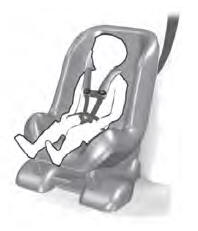Lincoln Aviator: Exterior Lighting / Removal and Installation - Stoplamp Switch
Removal
NOTE: Removal steps in this procedure may contain installation details.
-
Release the push pin and remove the drivers side insulation panel.
-
Remove the bolts.
Torque: 28 lb.in (3.2 Nm)
-
Remove the nut.
Torque: 22 lb.in (2.5 Nm)
-
Disconnect the electrical connector.
-
Remove the bolts.
.jpg) |
-
Disconnect the stoplamp switch electrical connector.
.jpg) |
-
NOTICE: Do not press, pull or otherwise move the brake pedal while installing the stoplamp switch and cruise control deactivation switch. Install these switches with the booster push rod attached to the brake pedal and with the brake pedal in the at-rest position. Installing these switches with the brake pedal in any other position results in incorrect adjustment and damages the switches.
Rotate the stoplamp switch clockwise approximately one-eighth turn to remove the stoplamp switch.
.jpg) |
Installation
-
NOTICE: Do not press, pull or otherwise move the brake pedal while installing the stoplamp switch and cruise control deactivation switch. Install these switches with the booster push rod attached to the brake pedal and with the brake pedal in the at-rest position. Installing these switches with the brake pedal in any other position results in incorrect adjustment and damages the switches.
To install, reverse the removal procedure.
 Removal and Installation - Reversing Lamp
Removal and Installation - Reversing Lamp
Removal
NOTE:
Removal steps in this procedure may contain installation details.
Remove the liftgate trim panel.
Refer to: Liftgate Trim Panel (501-05 Interior Trim and Ornamentation, Removal and Installation)...
 Removal and Installation - Rear Lamp Fade Control Module
Removal and Installation - Rear Lamp Fade Control Module
Removal
NOTE:
Removal steps in this procedure may contain installation details.
Remove the LH loadspace trim panel.
Refer to: Loadspace Trim Panel (501-05 Interior Trim and Ornamentation, Removal and Installation)...
Other information:
Lincoln Aviator 2020-2026 Service Manual: Removal and Installation - Front Door Speaker
Removal NOTE: Removal steps in this procedure may contain installation details. All vehicles Remove the front door trim panel. Refer to: Front Door Trim Panel (501-05 Interior Trim and Ornamentation, Removal and Installation). Front door mid range speaker Separate the wiring harness guide, remove the screws and the front door mid range speaker Torque: 22 lb...
Lincoln Aviator 2020-2026 Owners Manual: Information Display Controls
Note: The controls change when you enter a submenu. Move the selector switch up to enter the navigation submenu. Move the selector switch down to enter the settings submenu. Move the selector switch to the right to enter the mode phone submenu...
Categories
- Manuals Home
- Lincoln Aviator Owners Manual
- Lincoln Aviator Service Manual
- Disabling Auto-Start-Stop
- Changing the Front Wiper Blades - Vehicles With: Heated Wiper Blades
- Fuel Quality
- New on site
- Most important about car
Child Seats

Use a child restraint (sometimes called an infant carrier, convertible seat, or toddler seat) for infants, toddlers and children weighing 40 lb (18 kg) or less (generally four-years-old or younger).
Using Lap and Shoulder Belts
WARNING: Do not place a rearward facing child restraint in front of an active airbag. Failure to follow this instruction could result in personal injury or death.
